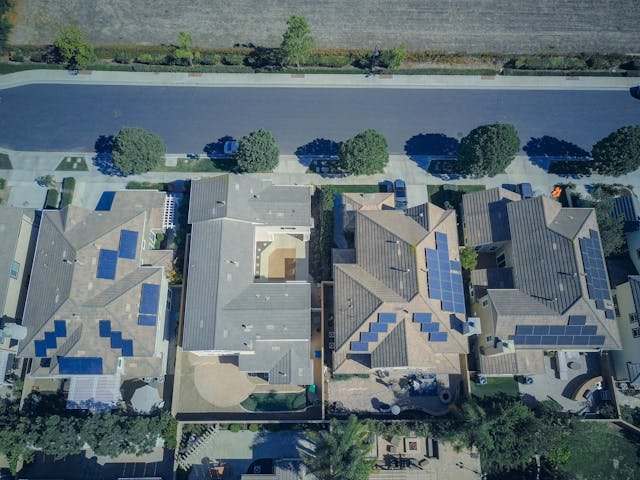lat roofing isn’t just about providing shelter, it’s a key architectural element for a multitude of buildings. Whether you’re a homeowner or a business, understanding the ins and outs of flat roofing can prove beneficial in maintaining its longevity and functionality.
Services Incorporated in Flat Roofing
Flat roofing services range from design and installation to repair and maintenance. These are broad categories, each encapsulating a spectrum of tasks.
Design and Installation
This involves choosing the right type of flat roof material such as bitumen, PVC, or EPDM rubber. The design needs to factor in weather conditions, usage, and budget. Installation requires specialized skills to ensure water doesn’t pool on the surface, thus preventing damage.
Repair and Maintenance
From detecting leaks to replacing damaged sections, repair services aim to prolong the life of your flat roof. Regular maintenance includes cleaning, conducting inspections to identify potential problems, and resealing when necessary.
Common Benefits of Flat Roofing
The popularity of flat roofing stems from several inherent advantages:
-
- Space Utilization: Unlike sloped roofs, flat roofs can be used as additional space for HVAC units, solar panels, or even rooftop gardens.
-
- Cost-Effective: Flat roofs usually require fewer materials than sloped roofs, making them a more cost-effective solution.
-
- Accessibility: Flat roofs are safer and easier to access for maintenance and repair, reducing risk and labor costs.
Potential Drawbacks of Flat Roofing
Though advantageous, flat roofs aren’t without their challenges:
-
- Drainage Issues: The biggest challenge with flat roofs is managing water drainage, which can lead to pooling and eventually leaks or damage if not properly installed or maintained.
-
- Shorter Lifespan: Due to potential water damage and sun exposure, flat roofs generally have a shorter lifespan than their pitched counterparts.
-
- Insulation Challenges: Flat roofs may require more insulation than sloped roofs, as they have a larger surface area exposed to the sun.
The Professional Edge: Why Hire Experts?
Flat roofs are not a do-it-yourself job. The installation process requires precise techniques to prevent water pooling and ensure proper sealing. Professional roofing companies have the expertise and tools to handle this process correctly, ensuring your flat roof functions optimally and lasts as long as possible.
Moreover, professionals can provide regular maintenance services to detect and fix problems early, thereby preventing larger and more costly repairs down the line. They also understand local building codes and regulations, ensuring your flat roofing project aligns with necessary standards.
Conclusion
Flat roofing presents unique opportunities and challenges. Its benefits like space utilization, cost-effectiveness, and accessibility make it a viable option for many property owners. But it’s important to understand the potential issues such as drainage, lifespan, and insulation. Engaging with reputable roofing companies near me not only guarantees proper installation but also ensures ongoing maintenance, thereby maximizing the longevity of your roof. Consequently, investing in professional care can demonstrate astute foresight over time.
















